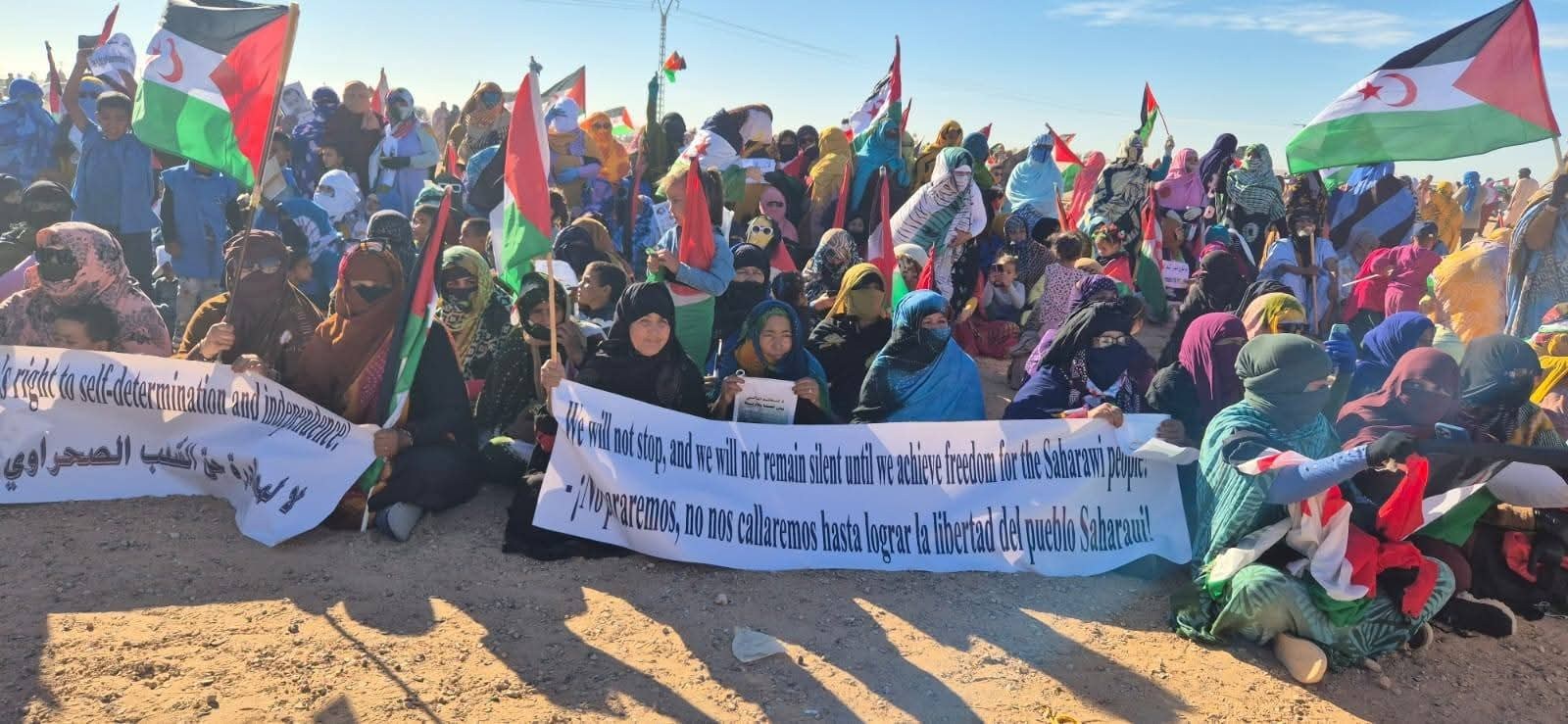Free Sahara

For nearly a century, Western Sahara — the last African territory to be decolonized — was administered by Spain, which in 1958 officially turned it into a Spanish province. Although the International Court of Justice had recognized the right of the Sahrawi people to self-determination, on 6 November 1975 Morocco launched the so-called Green March: a massive military and civil invasion in which 350,000 people crossed the border to occupy the territory and put pressure on Spain to abandon it.
Spain, instead of guaranteeing a process of independence supervised by the UN, signed the Madrid Agreements on 14 November 1975, handing over the territory to Morocco and Mauritania, despite not having the sovereignty to do so.
This hasty withdrawal left the Sahrawi people at the mercy of Moroccan occupation and repression. The population was the victim of bombing, forced displacement and persecution. Thousands fled to the refugee camps in Tindouf, Algeria, where even today resist, in extremely harsh conditions, while Morocco occupies most of the territory.
Spain thus abandoned its former colony, violating its obligations as an administering power and betraying its commitment to the self-determination of the Sahrawi people. Decades after the Madrid Accords, Spain staged a second major betrayal: in March 2022, the government of Pedro Sánchez publicly acknowledged that the autonomy proposal under Moroccan sovereignty was “the most serious, credible and realistic basis” for resolving the conflict. With this declaration, Spain broke its traditional position of neutrality and aligned itself with the position of Morocco, contradicting decades of UN resolutions that recognize the right of the Saharawi people to decide their future through a referendum.
On the eve of the 50th anniversary of the Green March, on 30 October, the United Nations Security Council will meet to vote on a new resolution on Western Sahara, coinciding with the expiration, the next day, of the mandate of the UN Referendum Mission (MINURSO), created in 1991 to organise a self-determination consultation.
The draft presented by the United States seeks to consolidate the framework of autonomy within the sovereignty of Morocco, omitting any reference to the referendum and promoting a direct role of Washington in the process, displacing the traditional leadership of the United Nations. Despite the objections of several Member States, the resolution will be forwarded to the Presidency of the Council for a vote.
Support for the Moroccan plan of autonomy over Western Sahara not only turns its back on the Sahrawi people and their right to decide, but also on international legality, which states that the territory remains a case of decolonization and its population is entitled to the self-determination.
It is shameful to see how the Saharawi people continue to be subjected to occupation, systematic violence and the plundering of their resources, while complicit governments and hypocritical international bodies look the other way.
Economic, geopolitical and military interests should never be put before the rights of peoples. That is why, from ELA, once again, we express all our solidarity and affection to the brave Saharawi people and demand a fair and definitive solution: the holding of a referendum in accordance with the resolutions of the United Nations that allows the Saharawi people to decide on their future and live in freedom.
